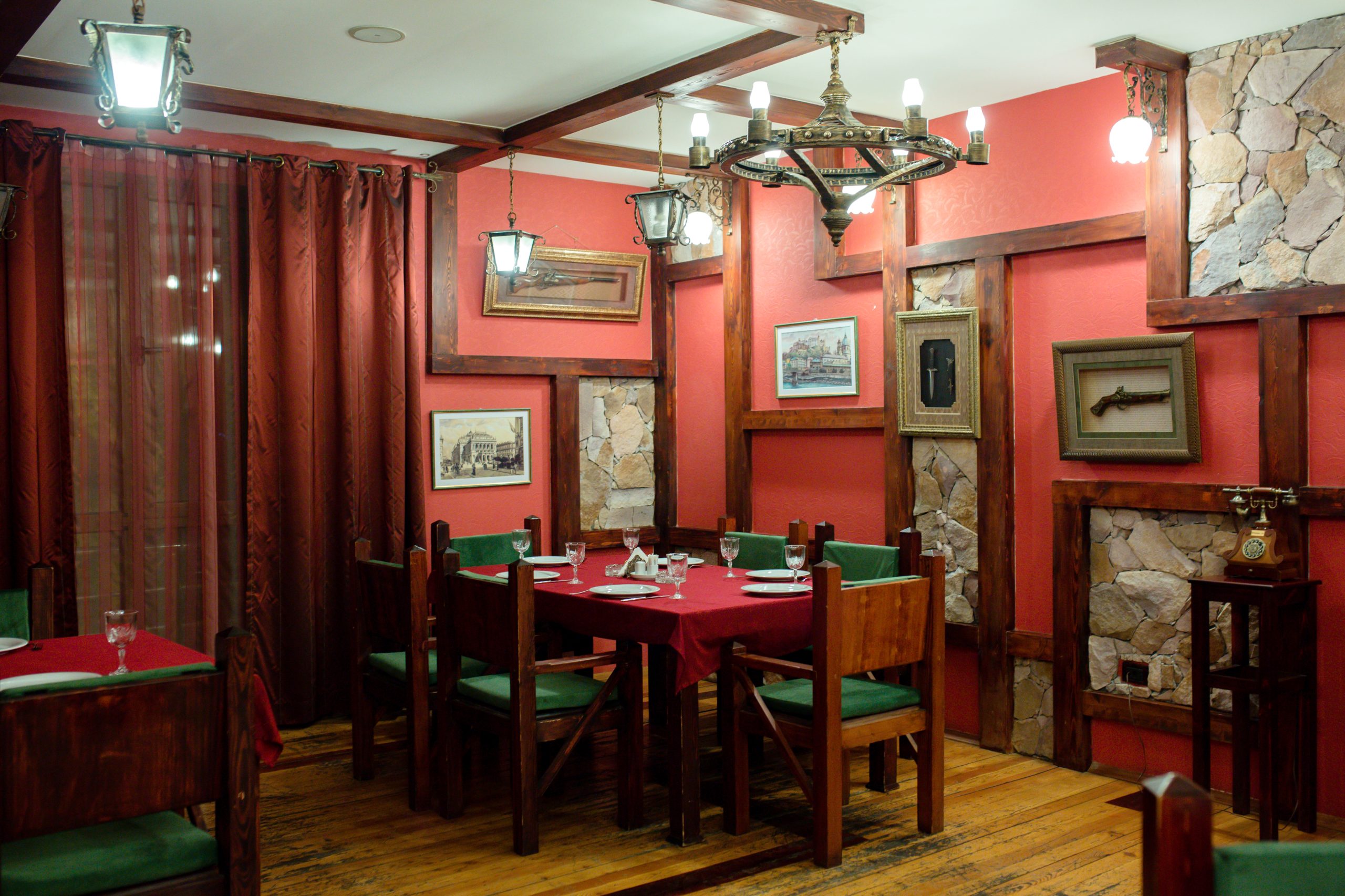Introduction
Opening a restaurant is no easy feat. From the planning and budgeting process, to the food preparation and customer service, there’s a lot that goes into running a successful restaurant. But before you can even begin, you need to have a comprehensive understanding of what it takes to run a restaurant and how customers view your business. That’s why we’ve created this comprehensive guide to the food service industry and reviews for aspiring restaurateurs. This article will provide all the knowledge you need to open a profitable eatery and get positive feedback from your diners. Read on to learn more!
Location
When starting a restaurant, one of the first things you need to consider is your location. The perfect location for your restaurant will depend on various factors, such as the type of cuisine you’re serving, your target market, and your budget.
If you’re serving a niche cuisine or are targeting a specific demographic, then you’ll want to choose a location that’s convenient for them. For example, if you’re serving Italian food to tourists in Rome, then you’ll want to be located near popular tourist attractions. If you’re budget is tight, then you might want to consider a smaller space or a location in a less desirable area.
Once you’ve chosen your location, it’s important to make sure that it meets all the requirements for food service businesses in your city or state. These requirements vary depending on where you are, but they typically include things like having proper ventilation and grease traps installed.
It’s also important to do your research on the competition in your area before choosing your location. Take a look at other restaurants in the area and see what they’re doing well and what they could improve upon. This will help you create a unique selling proposition for your own restaurant.
Finally, once you’ve selected your ideal location, it’s time to start thinking about how you will decorate and brand your space. This is an
The Competition
When it comes to the food service industry, there is a lot of competition out there. It is important to do your research and know what you are getting into before you open a restaurant. There are many different aspects to the food service industry, and each one has its own set of challenges.
The first thing you need to think about is the location of your restaurant. If you are in a small town, you may not have as much competition as you would in a large city. However, even in a small town, there may be a few other restaurants that offer similar menu items as yours. You need to be aware of your competition and what they are offering.
Another thing to consider is the type of food you will be serving. If you are going to be serving fast food, then you will need to make sure that you have a good location and that your prices are competitive. If you are going to be serving fine dining, then you will need to make sure that your restaurant is in a good location and that your menu is unique and appealing.
There are many other things to consider when it comes to the competition, but these are just a few of the most important things to keep in mind. Doing your research ahead of time will help you be prepared for anything that comes up once you open your restaurant doors.
The Menu
Assuming you would like a content section for a blog titled “The Menu”, here are some potential topics that could be covered:
-The do’s and don’ts of creating a restaurant menu
-How to use your menu to tell a story and create an experience for diners
-How to Balance creativity with practicality when it comes to your menu items
-The importance of considering your target audience when creating your menu
-Menu trends and how to make sure your menu is up-to-date
-Using your menu as a marketing tool
Food Quality
When it comes to food quality, there are a few things you need to keep in mind before opening a restaurant. First and foremost, you need to make sure that your food is fresh and of the highest quality. This means sourcing your ingredients from reputable suppliers and using the freshest produce available.
Another important aspect of food quality is presentation. Your dishes need to look appetizing and appealing in order to attract customers. This means taking care with your plating and ensuring that each dish is garnished nicely.
Finally, it’s important to remember that taste is subjective. What one person may consider delicious, another may find bland. It’s important to have a variety of dishes on your menu so that there’s something for everyone. Offering a selection of starters, main courses, and desserts will give your diners plenty of options to choose from.
Service
There are a few things you need to know about food service and reviews before opening a restaurant. First, make sure your food is of the highest quality. This means using fresh, local ingredients and cooking everything from scratch. Secondly, be aware of the different types of service available, such as table service, counter service, or buffet style. Finally, pay attention to online reviews and take any constructive criticism seriously in order to improve your business.
Marketing
When it comes to marketing your restaurant, there are a few key things you need to keep in mind. First and foremost, you need to make sure you have a strong online presence. This means having a well-designed website that is easy to navigate, and making sure you are active on social media platforms like Twitter, Facebook, and Instagram.
It is also important to consider traditional marketing methods like print ads, word-of-mouth marketing, and local event sponsorship. And of course, don’t forget about the power of reviews! Make sure you are actively monitoring sites like Yelp and Google Reviews, and responding to both positive and negative feedback in a professional manner.
By following these tips, you can help ensure that your restaurant stands out from the competition and attracts new customers.
Financing
There are a few things to consider when it comes to financing your restaurant. First, you will need to have a clear understanding of your start-up costs. This includes everything from the cost of leasing or buying a space to the cost of equipment and supplies. You will also need to factor in the cost of labor and marketing. Once you have a clear understanding of your start-up costs, you will need to secure funding. This can come from a variety of sources, including personal savings, loans, and investments.
If you are looking to secure a loan, be sure to shop around for the best rates and terms. You will also need to put together a detailed business plan that outlines your potential revenue and expenses. investors will want to see this before they provide any funding.
Once you have secured funding, it is important to create a realistic budget for your restaurant. This budget should include all of your anticipated expenses, as well as some buffer for unexpected costs. Be sure to review your budget regularly and make adjustments as needed.
Opening Day
Opening day is always an exciting time for any restaurant. However, it is also a very hectic and busy day. There are many things that need to be done in order to ensure a successful opening day. Here is a comprehensive guide to help you plan and prepare for opening day:
1. Make sure all of your equipment is in good working order and clean. This includes your stove, oven, refrigerator, dishwasher, and any other small appliances you may use.
2. Prepare all of your ingredients ahead of time. This way you can focus on cooking and serving your customers on opening day.
3. Create a detailed plan for the day, including who will be responsible for what tasks. This will help keep everyone on track and organized.
4. Promote your restaurant in the days leading up to the opening. This can be done through social media, flyers, or word-of-mouth.
5. On opening day, make sure to greet each customer with a smile and provide them with exceptional service. If you provide great food and service from the start, customers will be more likely to come back!
Review
When you’re thinking about opening a restaurant, one of the first things you need to do is research the food service industry and learn as much as you can. This comprehensive guide will cover everything you need to know about starting a restaurant, from the planning stages to running the day-to-day operations. We’ll also touch on some important topics like health code compliance and how to deal with reviews.
The food service industry is a competitive one, so it’s important that you have a solid plan in place before you open your doors. To help you get started, we’ve put together a comprehensive guide that covers everything from the planning stages to dealing with reviews. In this section, we’ll focus on the latter and talk about some things you should keep in mind when it comes to managing your restaurant’s online reputation.
It’s no secret that people love to share their thoughts and opinions online, so it’s important that you’re prepared for both positive and negative reviews. One way to do this is by monitoring sites like Yelp and TripAdvisor, as well as your own social media channels. Responding quickly and professionally to both good and bad reviews can go a long way in maintaining your restaurant’s reputation.
Another thing to keep in mind is that not all reviews are created equal. A one-star review from an unhappy customer might not be as damaging as a negative review from a food critic or influencer. That’s why it’s important to take each review into




